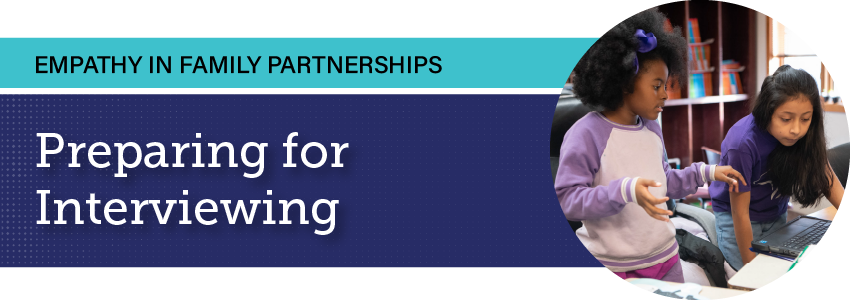CDE will be closed on Monday, September 1, for the Labor Day holiday.
You are here
Module 3: Building Relationships with Families on an Individual Level

Learning Objectives
-
Enhance your ability to communicate with individuals from cultural backgrounds different from your own.
Nonverbal communication
Understanding nonverbal communication is an important part of partnering with families. Nonverbal communication may be culturally dependent, so do not assume that you and a family share the same communication expectations (i.e., always assume the best in a family, rather than assuming a family member is being disrespectful or is disengaged in the conversation). Here are some tips to show that you are engaged in a conversation:
- Keep an open posture and stay oriented toward the person speaking
- Occasional nodding shows that you are listening
- Smile appropriately to show warmth and comfort
- Show empathy through facial expressions
- Maintain eye contact to show that you are listening
- Respect personal boundaries (i.e., do not touch anyone without asking, do not sit too closely to someone)
- Use a calm and reassuring tone
- Speak at a moderate pace and avoid professional jargon
- Demonstrate a curiosity to learn from the family
- Ask only one question at a time to avoid overwhelming family members
- Take time to share about yourself and learn about the family before jumping into problem-solving discussions about the student.
Also, look for signs of discomfort in family members, such as tense body posture, fidgeting, strained voice, silence, or speaking quickly. If you notice signs of discomfort, acknowledge that the topic may feel challenging to discuss. Provide reassurance and validate the family member’s feelings. It may be helpful to offer a break in the interview.
While it may, at times, feel challenging to navigate cultural and linguistic differences with families, difficulties can often be bridged with sincere care and communicating a genuine desire to support the child. Most of all, families want to know that you care about their child, have the child’s best interests at heart, and will work to serve their child’s needs. Conveying this care to the family in a respectful, open, and genuine way will create a foundation upon which to build an ongoing partnership.
Having trouble with this webpage?
If you have problems with broken links or accessing the content on this page, please contact the Exceptional Student Services Unit at ESSU@cde.state.co.us. Please copy the URL link for this page into the email when referencing the problem you are experiencing.


Connect With Us





